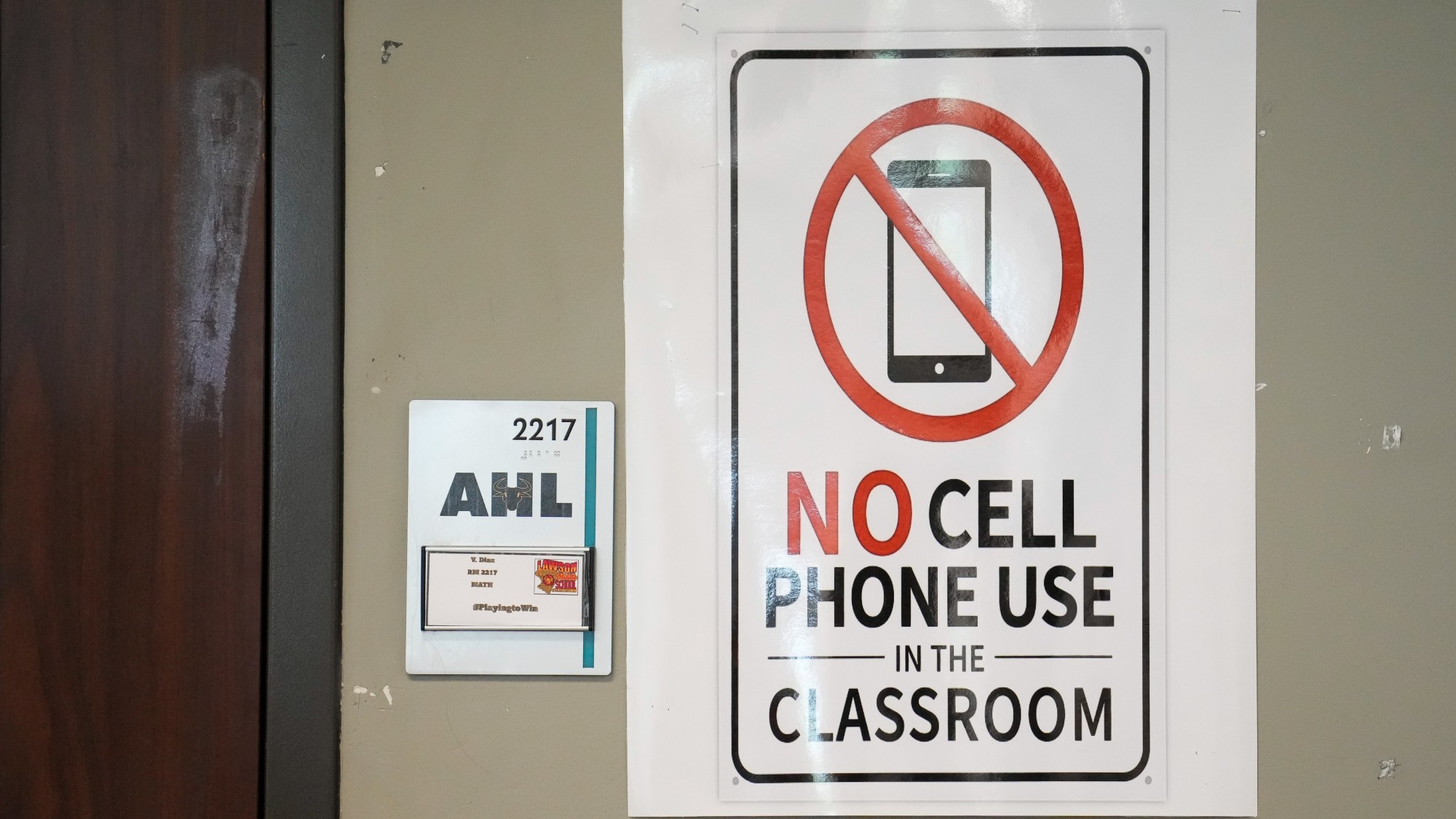Where are Britain’s missing schoolchildren?
More than 1.8 million pupils are ‘persistently absent’ from classes

A free daily email with the biggest news stories of the day – and the best features from TheWeek.com
You are now subscribed
Your newsletter sign-up was successful
School attendance is failing to return to pre-pandemic levels as data shows that more than one in five children in England are still frequently absent.
Before the pandemic around one in 10 students were “persistently absent”, meaning they missed at least 10% of school days a year or approximately one or more days every fortnight. But over the past academic year, Department for Education (DfE) statistics reveal that 22.3% of pupils in England now fall into this category, said the BBC.
Speaking to the BBC’s “Sunday with Laura Kuenssberg”, Rachel de Souza, the children’s commissioner for England, said this meant 1.8 million children were regularly missing school, with some 100,000 of those believed to playing truant.
The Week
Escape your echo chamber. Get the facts behind the news, plus analysis from multiple perspectives.

Sign up for The Week's Free Newsletters
From our morning news briefing to a weekly Good News Newsletter, get the best of The Week delivered directly to your inbox.
From our morning news briefing to a weekly Good News Newsletter, get the best of The Week delivered directly to your inbox.
“We’ve got a real problem post-pandemic around attendance,” she said. “1.8 million of an eight million cohort is huge… that’s double the number from before the pandemic.”
Who is missing from school and why?
The reason behind children being persistently absent from school is complex, said de Souza. Some are playing truant while others are experiencing anxiety or have educational needs that means it is easier for them to learn at home.
The DfE data shows that the problem is most pronounced among children receiving free school meals (37.9%) and those with education, health and care plans (33.4%).
The data also shows that absence due to illness rose from 2.1% in 2020-21 to 4.4% last year. Unauthorised absences rose from 1.3% to 2.1% in the same period.
A free daily email with the biggest news stories of the day – and the best features from TheWeek.com
There are now “more relaxed attitudes among parents in allowing children to stay home”, said Timo Hannay, managing director of the education data website SchoolDash. This is thanks to the “proven capacity of schools to provide online alternatives to in-person teaching”, he told Schools Week. Parents are also now more likely to let their children take Fridays off school; a 2023 study by the children’s commissioner, based on three academy trusts, found that nearly a quarter of children missed at least one Friday during the autumn 2021 term.
Why is attendance so important?
Regular school attendance is vital for a child’s “achievement, wellbeing, and wider development”, according to the government’s Education Hub blog.
Research indicates that students with high attendance perform better in GCSE and A-level exams than those with lower attendance.
Primary school children in key stage 2 who didn’t achieve the expected standard in reading, writing and maths missed on average four more days per school year than those whose performance exceeded the expected standard, according to government data. Secondary school pupils who didn’t achieve grades 9 to 4 in English and maths missed 10 more days on average over the key stage than those who achieved the higher grades.
What is the government doing?
The government has promised to expand its “attendance hubs” programme in England in a bid to encourage more children to return to school. These are led by senior school leaders with strong attendance rates, who share strategies with other schools, such as automatic text messaging to parents of absent children and using data to identify pupils at risk of persistent absence.
Parents of children in England who consistently miss school also face £60 fines, which rise to £120 if they are not paid within 21 days. These are normally issued by the local authority.
Sorcha Bradley is a writer at The Week and a regular on “The Week Unwrapped” podcast. She worked at The Week magazine for a year and a half before taking up her current role with the digital team, where she mostly covers UK current affairs and politics. Before joining The Week, Sorcha worked at slow-news start-up Tortoise Media. She has also written for Sky News, The Sunday Times, the London Evening Standard and Grazia magazine, among other publications. She has a master’s in newspaper journalism from City, University of London, where she specialised in political journalism.
-
 Key Bangladesh election returns old guard to power
Key Bangladesh election returns old guard to powerSpeed Read The Bangladesh Nationalist Party claimed a decisive victory
-
 Judge blocks Hegseth from punishing Kelly over video
Judge blocks Hegseth from punishing Kelly over videoSpeed Read Defense Secretary Pete Hegseth pushed for the senator to be demoted over a video in which he reminds military officials they should refuse illegal orders
-
 Trump’s EPA kills legal basis for federal climate policy
Trump’s EPA kills legal basis for federal climate policySpeed Read The government’s authority to regulate several planet-warming pollutants has been repealed
-
 The pros and cons of banning cellphones in classrooms
The pros and cons of banning cellphones in classroomsPros and cons The devices could be major distractions
-
 School phone bans: Why they're spreading
School phone bans: Why they're spreadingFeature 17 states are imposing all-day phone bans in schools
-
 Schools: The return of a dreaded fitness test
Schools: The return of a dreaded fitness testFeature Donald Trump is bringing the Presidential Fitness Test back to classrooms nationwide
-
 Send reforms: government's battle over special educational needs
Send reforms: government's battle over special educational needsThe Explainer Current system in 'crisis' but parents fear overhaul will leave many young people behind
-
 Education: Can public schools be religious?
Education: Can public schools be religious?Feature A Supreme Court seems ready to rule in favor of religious charter schools in Oklahoma, which could reshape public education
-
 America's academic brain drain has begun
America's academic brain drain has begunIN THE SPOTLIGHT As the Trump administration targets universities and teachers, educators are eying greener academic pastures elsewhere — and other nations are starting to take notice
-
 Schools' Send crisis: how can it be fixed?
Schools' Send crisis: how can it be fixed?Today's Big Question Government urged to reform support for children with special educational needs and disabilities and save councils from bankruptcy
-
 Unschooling: the radical education trend raising eyebrows
Unschooling: the radical education trend raising eyebrowsUnder the radar Some parents are letting their children lead their education